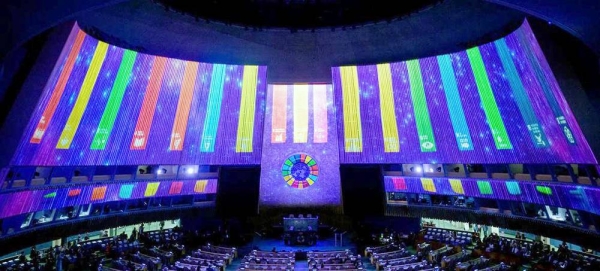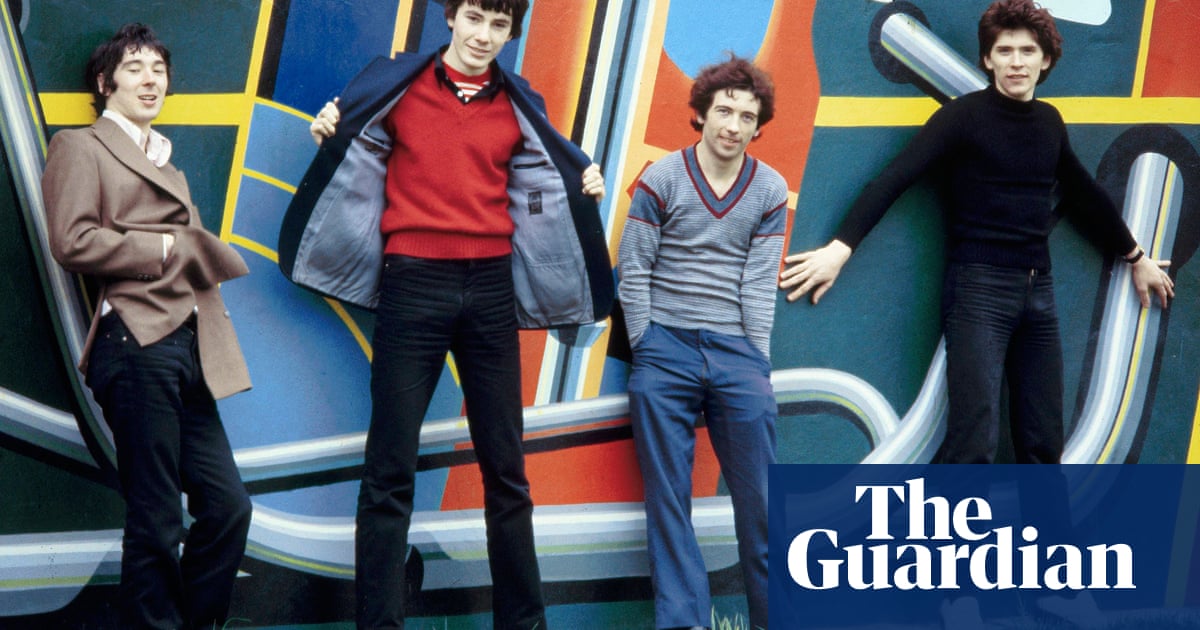
He is everywhere and nowhere. The words of Jalal al-Din Rumi are found on sunset images pasted on Instagram and coffee mugs sold on Etsy; his poems have been featured in recordings from Madonna and Coldplay and he is reputed to be the bestselling poet in the US. Rumi’s observations and aphorisms on life may be endlessly cited – “You are not a drop in the ocean, you are the entire ocean in a drop” – but few in the west know him as anything more than a bearded Sufi mystic.
“Rumi has become a mystical, almost deified figure,” says Nadim Naaman. “The reality is that he was the opposite of an untouchable deity.” Naaman, a British Lebanese singer, actor and writer, has collaborated with the Qatari composer Dana Al Fardan to create Rumi: The Musical. “Our approach was to take the man out of the myth,” says Al Fardan, “and to present him as human being.” This is the second time Naaman and Al Fardan have brought a beloved Middle Eastern poet to the London stage. Their 2018 show Broken Wings, which is returning to London in the new year, was based on a novel by the Lebanese poet and writer Kahlil Gibran. It was the success of that production that convinced them there may be an appetite for a musical that delved into the life of Rumi.
Rumi was born in 1207 in present day Afghanistan. He was 36 and married with two children when he met a wandering mystic known as Shams of Tabriz. The two began what started as an intense friendship, and which might have developed into a love affair. When Shams disappeared after three years, Rumi turned to poetry to cope with the separation, writing more than 3,000 love songs to Shams, the prophet Muhammad and God.
The contemporary popularity of Rumi traces back to the mid-1970s and the translations of Rumi’s writing by the American academic and poet Coleman Barks, who sought to foreground the timeless, universal essence in the writings. “His entire ideology is based on cultivating the essence within,” says Al Fardan. “Rumi managed to latch on to themes and feelings that can apply to everyone,” says Naaman. “He’s managed to do that because his focus is on self-reflection.”
These ideas feel timely given the pandemic and its aftermath. “We’ve all reassessed our lives,” says Naaman, “and explored what we can do without and our place in the world.” His writings may transcend time and place but Rumi was not only a mystic and philosopher – he was also a devout Muslim. These days his Muslim identity is rarely recalled by those in the west who quote him so liberally. The erasure of Rumi’s Islamic identity – what one academic refers to as an act of “spiritual colonialism” – is also what makes a production such as this necessary. It seeks to restore a religious and geographic specificity to Rumi and in so doing challenge common tropes about the Middle East.
“We’re tired of the portrayal of our region in drama, where the focus is always problematic – terrorism, refugees, war,” says Naaman. “There is a lack of Middle Eastern stories and those that do exist are fictitious or very Hollywood in their interpretation. You have shows like Aladdin, The Prince of Egypt and Joseph – stories that, to a large degree, come from Middle Eastern and north African heritage, but they have historically been played by white actors with white creative teams and they’re almost a pastiche. They have the right heart but they’re not authentic.”
The cast of Rumi: The Musical, by contrast, is of Middle Eastern, north African and south Asian heritage, and the 20 songs featured in the semi-staged production are all inspired by Rumi’s poetry. “If you’re going to bring a Middle Eastern icon to the western stage to celebrate their cultural legacy, it feels entirely right that your cast are able to be a part of that, so they are able to feel proud that they’re the one telling the story from their part of the world,” says Naaman.
The team behind the musical hope that by revealing the man behind the myth audiences may also feel able to disentangle the truth from the myths about Islam and the Middle East. “There is much more to the Middle East than they [those living in the west] have been led to believe growing up,” says Naaman. “So many beautiful things on planet Earth come from that region – artistically, linguistically, musically – so much of the culture the world enjoys.”












